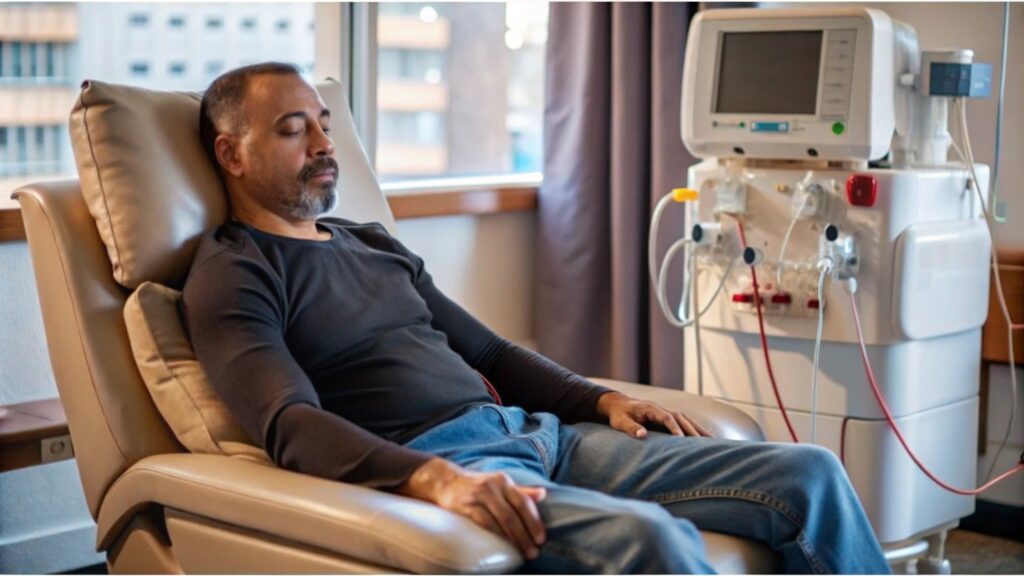Introduction to Hemodialysis
Hemodialysis is a treatment for people with kidney failure. When kidneys stop working well, waste and extra fluid build up in the body. Because of this, hemodialysis helps remove these wastes and fluids. The procedure uses a machine to clean the blood. Many people visit hemodialysis centers for this care. Hemodialysis can help you feel better and live longer.
Symptoms and Signs That May Lead to Hemodialysis
Some symptoms may show your kidneys are not working well. If you notice these signs, you should talk to your doctor. Early care can help prevent problems. Common symptoms include:
Sometimes, these symptoms can be mild at first. However, they may get worse over time.
Causes and Conditions Requiring Hemodialysis
Many health problems can damage the kidneys. When kidney damage is severe, hemodialysis may be needed. The most common causes include:
In some cases, sudden injury or illness can also cause kidney failure. Your doctor will decide if hemodialysis is right for you.
How Hemodialysis Works: Step-by-Step Process
Hemodialysis uses a special machine to clean your blood. Here is how the hemodialysis procedure usually works:
Some people may have hemodialysis at home. However, most visit a clinic or hospital.
Common Risks and Side Effects of Hemodialysis
Like any medical treatment, hemodialysis has some risks. Most side effects are mild, but some can be serious. Common risks and side effects include:
Rarely, more serious problems can happen. For example, heart problems or severe infections may occur. Your care team will watch for these issues and help manage them.
Lifestyle Guidance for Patients on Hemodialysis
Living with hemodialysis means making some changes. With the right support, you can still enjoy life. Here are some helpful tips:
Diet
Physical Activity
Emotional Support
With good care, many people on hemodialysis lead full lives.
Prevention and Early Intervention Tips
Although not all kidney problems can be prevented, you can lower your risk. Early action can help protect your kidneys. Try these tips:
If you notice any symptoms of kidney trouble, seek medical advice early. This can help delay or prevent the need for hemodialysis.
Frequently Asked Questions (FAQs) About Hemodialysis
Conclusion
Hemodialysis is a life-saving treatment for kidney failure. With the right care and support, you can manage the risks and live well. For personalized advice on hemodialysis and kidney health, consult a nephrologist.
